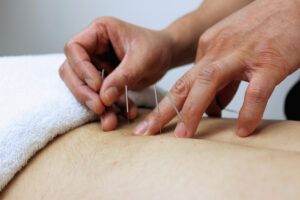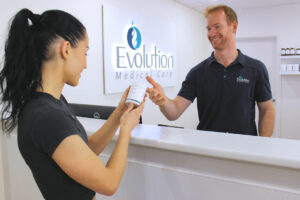Quick Summary
Post-workout recovery is essential for muscle repair, injury prevention, and peak performance. A well-rounded approach includes hydration, balanced nutrition, stretching, mobility work, active recovery, and proper rest.
Self-help strategies like electrolyte replenishment, foam rolling, and supplements (e.g., magnesium, omega-3s) aid recovery, but professional treatments like Acupuncture, Remedial Massage, Electro-Acupuncture, and Cupping Therapy can enhance circulation, reduce inflammation, and accelerate healing.
In the realm of fitness, we often hear the mantra, “No pain, no gain.” While pushing your limits can be rewarding, it’s crucial to remember that recovery is an integral part of any workout regimen.
Unfortunately, the importance of post-workout recovery is often overshadowed by the allure of more reps, heavier weights, and faster miles. This oversight can lead to a cycle of chronic pain, fatigue and even injury.
But what if we told you that you could manage your post-workout recovery effectively through a blend of self-help strategies and science-based treatments? In this article, we’ll delve into a comprehensive approach to post-workout recovery that not only enhances your performance but also improves your overall well-being.
The Science Behind Effective Recovery
To understand the necessity of a well-rounded post-workout recovery plan, it’s essential to grasp the biochemical processes that your body undergoes after exercise. When you work out, your muscles experience microscopic damage, triggering an inflammatory response. This is a natural part of the healing process, but it can also lead to soreness and stiffness if not managed correctly.
Hormones play a significant role in this phase. For instance, cortisol levels rise during exercise and can remain elevated if adequate recovery is not undertaken. Elevated cortisol can lead to muscle breakdown, hampering the gains you’ve worked so hard for.
Blood flow is another crucial factor in post-workout recovery. Proper circulation ensures that nutrients and oxygen are adequately delivered to the muscle tissues, aiding in quicker recovery and reducing fatigue.
Lastly, the nervous system is intricately involved in how you feel post-exercise. Both the sympathetic and parasympathetic nervous systems are activated during physical activity. The sympathetic nervous system prepares your body for ‘fight or flight,’ while the parasympathetic nervous system aids in ‘rest and digest.’ Balancing the two is essential for optimal recovery.
Understanding these biochemical processes is the first step in creating a post-workout recovery plan that works for you. In the following sections, we’ll discuss why traditional recovery methods often fall short and introduce comprehensive self-help strategies and science-based treatments that can make a world of difference in your post-workout recovery journey.
Why Traditional Recovery Methods Fall Short
We’ve all been there—finishing a gruelling workout and thinking that a quick stretch and a gulp of water will suffice for recovery. While these traditional methods aren’t entirely without merit, they often fall short of addressing the complex changes that your body undergoes post-exercise.
For instance, basic stretching can help to some extent but doesn’t necessarily target deeper muscle tissues or alleviate the inflammation that naturally occurs after a workout. Similarly, while hydration is crucial, water alone doesn’t provide the necessary nutrients and electrolytes that your body needs for full recovery.
Moreover, many people overlook the importance of rest days, thinking that more exercise is always better. However, without adequate rest, the hormones and nervous system don’t have the time to reset, leading to a state of chronic stress and fatigue. This not only hampers your performance but can also lead to more severe health issues over time.
DIY Strategies for Post-Workout Recovery
The cornerstone of a successful post-workout recovery lies in a multi-faceted approach that goes beyond the basics. Here, we delve into a comprehensive set of self-help strategies that can significantly elevate your recovery process.

Hydration and Nutrition: More Than Just Water and Calories
While water is essential for rehydration, your body also loses vital electrolytes during exercise that plain water can’t replace. Opt for electrolyte-rich drinks like coconut water or specialised sports drinks to restore the balance of minerals like sodium, potassium and magnesium in your body.
Nutrition is another pillar of effective recovery. Protein is crucial for muscle repair, but carbohydrates are equally important to replenish glycogen stores. Consider a balanced meal that includes lean protein, complex carbohydrates, and healthy fats. Foods rich in antioxidants can also help combat exercise-induced oxidative stress.
Active Recovery and Rest Days: The Yin and Yang of Fitness
Active recovery involves low-impact activities that keep you moving without putting stress on your muscles. Think swimming, walking, or even a leisurely bike ride. These activities promote blood flow, aiding in the removal of waste products like lactic acid from the muscles.
Rest days are equally important. A rest day doesn’t necessarily mean lying on the couch all day—although that’s perfectly fine too! It means giving your body the time to repair and your nervous system the opportunity to balance out. This is crucial for hormones like cortisol to return to baseline levels, promoting overall health.
Stretching and Mobility Exercises: Beyond the Basics
While static stretching post-workout can help with immediate muscle relief, incorporating a range of stretching and mobility exercises can offer long-term benefits. Dynamic stretching before your workout prepares your muscles and joints for activity. Post-workout, consider using foam rollers or Trigger Point Balls to target deeper muscle tissues and fascia, which can be particularly effective in alleviating muscle tightness and inflammation.
Over-the-Counter Supplements: The Extra Mile
Magnesium is a popular over-the-counter supplement that can aid in muscle relaxation and improve sleep quality. Omega-3 fatty acids, found in fish oil supplements, have anti-inflammatory properties that can aid in muscle recovery. Always consult with a healthcare provider before starting any new supplement regimen.

Sample Post-Workout Recovery Routine: Putting It All Together
- Rehydrate with an electrolyte drink immediately post-workout.
- Consume a balanced meal or protein shake within two hours.
- Engage in 10-15 minutes of static stretching focusing on worked muscle groups.
- Use a Trigger Point Ball on areas that feel particularly sore or tight.
- If it’s a rest day, consider an active recovery activity.
- Take Magnesium supplements as per the recommended dosage before bed.
By adopting these comprehensive self-help strategies, you’re not just aiding your body in the recovery process; you’re setting the stage for improved performance and long-term well-being.
Evolution Medical Care’s Recovery Treatments
While self-help strategies lay the foundation for effective post-workout recovery, there’s a level of care and precision that only professional treatments can provide. At Evolution Medical Care, we’re committed to offering science-based treatments that complement your self-help efforts, providing a holistic approach to post-workout recovery.
Our range of treatments includes Acupuncture, Remedial Massage, Electro-Acupuncture, Kinesio Taping, TENS Therapy, and Cupping Therapy. These treatments are designed to target specific biochemical processes in your body, such as improving blood flow, balancing hormones, and regulating the nervous system, to aid in your recovery.
For instance, Acupuncture can stimulate the nervous system, releasing endorphins and other neurotransmitters that not only relieve pain but also promote a sense of well-being. Remedial Massage can improve blood flow and reduce muscle tension, aiding in quicker recovery and reduced fatigue. Electro-Acupuncture and TENS Therapy can be particularly effective in managing chronic pain conditions by modulating the pain signals sent to the brain.

Self-Help and Professional Care
The beauty of a comprehensive post-workout recovery plan lies in the synergy between self-help strategies and professional care. While self-help methods offer the convenience and immediacy of at-home care, science-based treatments like those provided at Evolution Medical Care add a layer of targeted, specialised care that can significantly enhance your recovery process.
For example, you might find that despite adequate stretching and nutrition, you still experience persistent muscle soreness. This is where a Remedial Massage or Acupuncture session can provide targeted relief, addressing the deeper layers of muscle tissue and promoting faster healing.
Ready to Get Started?
Your journey to optimal health and performance is a collaborative effort. At Evolution Medical Care, we’re committed to being your partner in that journey. If you’re looking to elevate your post-workout recovery and overall well-being, we invite you to book an appointment online or give us a call at (02) 4709 6727. We look forward to discussing how our range of recovery treatments can complement your self-help strategies to provide a comprehensive solution to your post-workout recovery needs.





